第19章 THREE The Duel of Dr Hirsch(6)
The Duke, however stimulated, had the instincts of an aristocrat, and desired rather to stare at the house than to spy on it; but Flambeau, who had the instincts of a burglar (and a detective), had already swung himself from the wall into the fork of a straggling tree from which he could crawl quite close to the only illuminated window in the back of the high dark house. A red blind had been pulled down over the light, but pulled crookedly, so that it gaped on one side, and by risking his neck along a branch that looked as treacherous as a twig, Flambeau could just see Colonel Dubosc walking about in a brilliantly-lighted and luxurious bedroom. But close as Flambeau was to the house, he heard the words of his colleagues by the wall, and repeated them in a low voice.
"Yes, they will meet now after all!"
"They will never meet," said Father Brown. "Hirsch was right when he said that in such an affair the principals must not meet.
Have you read a queer psychological story by Henry James, of two persons who so perpetually missed meeting each other by accident that they began to feel quite frightened of each other, and to think it was fate? This is something of the kind, but more curious."
"There are people in Paris who will cure them of such morbid fancies," said Valognes vindictively. "They will jolly well have to meet if we capture them and force them to fight."
"They will not meet on the Day of Judgement," said the priest.
"If God Almighty held the truncheon of the lists, if St Michael blew the trumpet for the swords to cross--even then, if one of them stood ready, the other would not come."
"Oh, what does all this mysticism mean?" cried the Duc de Valognes, impatiently; "why on earth shouldn't they meet like other people?"
"They are the opposite of each other," said Father Brown, with a queer kind of smile. "They contradict each other.
They cancel out, so to speak."
He continued to gaze at the darkening trees opposite, but Valognes turned his head sharply at a suppressed exclamation from Flambeau.
That investigator, peering into the lighted room, had just seen the Colonel, after a pace or two, proceed to take his coat off.
Flambeau's first thought was that this really looked like a fight; but he soon dropped the thought for another. The solidity and squareness of Dubosc's chest and shoulders was all a powerful piece of padding and came off with his coat. In his shirt and trousers he was a comparatively slim gentleman, who walked across the bedroom to the bathroom with no more pugnacious purpose than that of washing himself.
He bent over a basin, dried his dripping hands and face on a towel, and turned again so that the strong light fell on his face.
His brown complexion had gone, his big black moustache had gone; he--was clean-shaven and very pate. Nothing remained of the Colonel but his bright, hawk-like, brown eyes. Under the wall Father Brown was going on in heavy meditation, as if to himself.
"It is all just like what I was saying to Flambeau.
These opposites won't do. They don't work. They don't fight.
If it's white instead of black, and solid instead of liquid, and so on all along the line--then there's something wrong, Monsieur, there's something wrong. One of these men is fair and the other dark, one stout and the other slim, one strong and the other weak.
One has a moustache and no beard, so you can't see his mouth; the other has a beard and no moustache, so you can't see his chin.
One has hair cropped to his skull, but a scarf to hide his neck; the other has low shirt-collars, but long hair to bide his skull.
It's all too neat and correct, Monsieur, and there's something wrong.
Things made so opposite are things that cannot quarrel.
Wherever the one sticks out the other sinks in. Like a face and a mask, like a lock and a key..."
Flambeau was peering into the house with a visage as white as a sheet.
The occupant of the room was standing with his back to him, but in front of a looking-glass, and had already fitted round his face a sort of framework of rank red hair, hanging disordered from the head and clinging round the jaws and chin while leaving the mocking mouth uncovered.
Seen thus in the glass the white face looked like the face of Judas laughing horribly and surrounded by capering flames of hell.
For a spasm Flambeau saw the fierce, red-brown eyes dancing, then they were covered with a pair of blue spectacles. Slipping on a loose black coat, the figure vanished towards the front of the house.
A few moments later a roar of popular applause from the street beyond announced that Dr Hirsch had once more appeared upon the balcony.